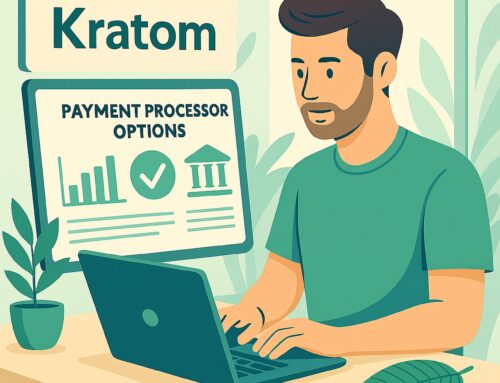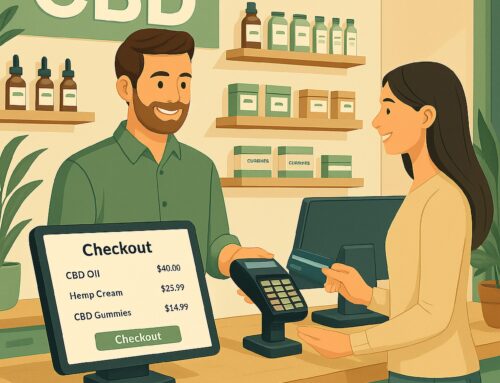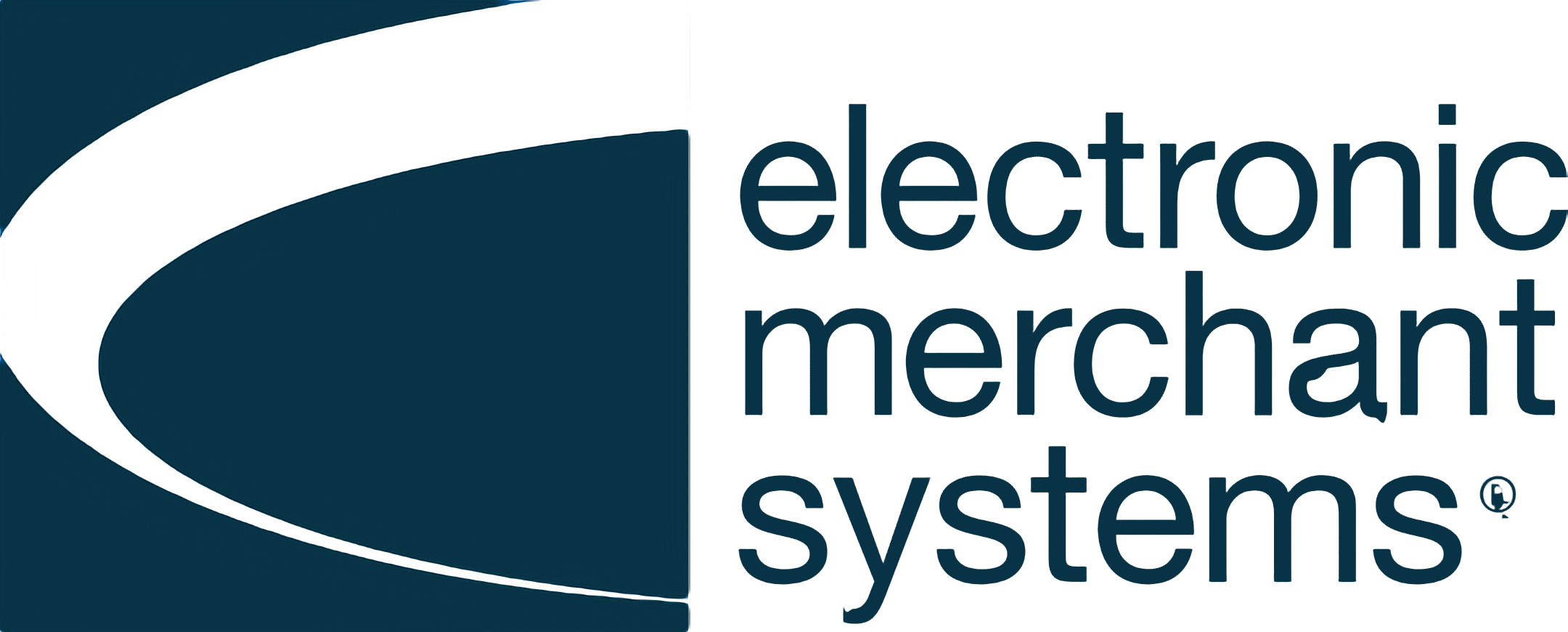Key Highlights of the Best POS System for Small Business
- Explore top POS systems designed for small businesses to streamline operations.
- Compare key features, pricing, and best-use cases of leading POS solutions.
- Learn about essential tools like payment processing, inventory management, and customer relationship management (CRM).
- Get expert tips on selecting the right POS system for your business needs.
- Discover answers to frequently asked questions and find the perfect fit for your business.
- Maximize your POS system’s potential with insights on employee training, data usage, and reporting.
Introduction
In today’s fast-paced market, small business owners must continuously seek ways to optimize operations, improve efficiency, and enhance customer experience. A robust Point of Sale (POS) system can be a game changer for achieving these goals. Far more than a tool for handling transactions, modern POS systems offer advanced features like inventory management, customer relationship management (CRM), and detailed sales analytics. Additionally, seamless integrations with other business tools can help streamline workflows.
With easy-to-use interfaces, strong customer support, and scalable solutions, the right POS system can significantly contribute to small business success. In this guide, we’ll explore the best POS systems for small business on the market, outlining their features, pricing, and ideal business types to help you make an informed decision.
What are the top features to look for in a POS system for a small business?
Look for user-friendly interfaces, inventory management tools, sales reporting features, and integration capabilities with payment processors. Scalability for business growth, customer support options, and data security are also crucial for small business POS systems.
Best POS System for Small Business: Who Made the List?
Selecting the best POS system is crucial for small business owners, as it affects daily operations and long-term profitability. With many options available, it’s important to assess your current business needs and how your POS system can scale as your business grows.
For instance, if you operate a retail store, you may prioritize features like inventory management, while a restaurant might focus on table management and menu customizations. Meanwhile, mobile POS systems are ideal for businesses that need flexibility, such as food trucks or pop-up shops. Let’s dive into the top POS systems and highlight their strengths, use cases, and potential challenges.

1. DejaPayPro: A Comprehensive POS for All Business Types
DejaPayPro by DejaVoo is a cloud-based POS system designed for both retail and quick-service restaurants (QSRs). Known for its fast performance and versatile features, DejaPayPro excels at inventory management, payment processing, and CRM capabilities. The system’s ability to function both online and offline ensures uninterrupted business operations, even during internet outages.
Compatible with Android registers, tablets, and DejaVoo terminals, DejaPayPro is suitable for businesses of all sizes. It supports EMV Certified payments, Apple Pay, Google Pay, and contactless cards, making it ideal for curbside transactions. Additionally, DejaPayPro offers cash discount services and surcharges, helping businesses maintain profitability.
Key Features and Benefits:
- Flexible Payment Processing: Accept various payment methods including credit/debit cards and mobile wallets.
- Robust Inventory Management: Track stock levels, manage vendor relationships, and set reorder points.
- Customizable CRM: Create customer profiles and loyalty programs to boost retention.
- 24/7 Customer Support: Receive comprehensive support through One-Call Resolutions and tiered service levels.
VERIFIED Credit Card Processing partners with DejaPayPro to offer flexible payment solutions and help businesses seamlessly integrate the system into their workflow.
Pros:
- User-friendly interface with fast performance.
- Suitable for both retail and restaurants.
- Strong 24/7 customer support.
Cons:
- Limited offline capabilities for more complex tasks.
- Some advanced features require higher-tier pricing plans.

2. Korona POS: Advanced Features and Scalability for Growing Businesses
Korona POS is a highly scalable, cloud-based system tailored for retailers, event businesses, and theme parks. It excels in handling inventory management, vendor management, and CRM tools, making it ideal for businesses looking to grow. Korona POS also integrates with e-commerce platforms like Shopify and WooCommerce, offering a unified solution for businesses with both physical and online stores.
Key Features and Benefits:
- Cloud-Based Scalability: Manage multiple locations and grow without limitations.
- Real-Time Inventory Tracking: Monitor stock levels, manage vendors, and automate purchase orders.
- Flexible Payment Processing: Accept various payment methods, including mobile wallets and contactless payments.
- Custom Reporting: Generate real-time sales reports and make data-driven decisions.
VERIFIED Credit Card Processing ensures smooth integration with Korona POS, helping businesses leverage advanced features like real-time reporting and e-commerce integration.
Pros:
- Scalable for growing businesses.
- Advanced inventory and reporting features.
Cons:
- Higher price point than some competitors.
- Complex setup may require professional assistance.
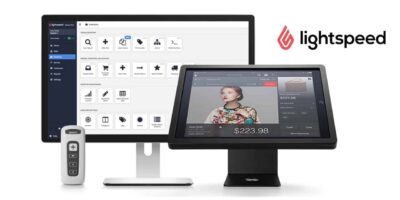
3. Lightspeed: Revolutionizing Customer Loyalty with Advanced Tools
Lightspeed is a cloud-based POS system popular among retailers and hospitality businesses. Its powerful inventory management tools and integrated CRM capabilities make it a top choice for businesses with high stock volumes or multiple locations.
Lightspeed also offers detailed customer tracking features that can help build loyalty programs and personalized marketing campaigns, a key benefit for businesses looking to enhance customer retention.
Key Features and Benefits:
- Advanced Inventory Management: Track stock levels, automate orders, and manage suppliers.
- Built-In CRM: Personalize customer interactions with detailed profiles and loyalty programs.
- Flexible Payment Options: Accept contactless and mobile payments with third-party gateway integrations.
- Comprehensive Reporting: Access real-time reports on sales, inventory, and customer behavior.
VERIFIED Credit Card Processing integrates smoothly with Lightspeed, offering tailored solutions to meet specific business needs.
Pros:
- Powerful CRM and loyalty program tools.
- Suitable for businesses with multiple locations.
Cons:
- Higher pricing compared to other systems.
- Support response times can sometimes lag.
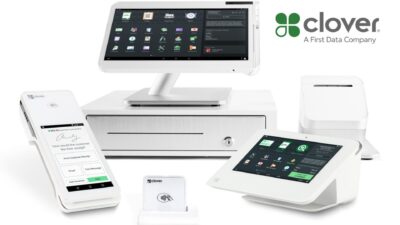
4. Clover: Versatile and Customizable POS for All Business Sizes
Clover is known for its flexibility and extensive customization options, making it suitable for businesses of all sizes. From retail shops to restaurants, Clover offers industry-specific apps and features to enhance operations. Clover’s app marketplace allows businesses to select features like inventory management, employee scheduling, or customer loyalty programs.
Key Features and Benefits:
- App Marketplace: Access a wide variety of third-party apps for deeper customization.
- Multi-Device Support: Use Clover on multiple devices, from mobile to stationary terminals.
- Secure Payment Processing: PCI-compliant system for secure transactions.
- Integrated Reporting: Generate reports on sales, inventory, and employee performance.
With VERIFIED Credit Card Processing, Clover users enjoy seamless merchant account setup, secure payment processing, and comprehensive support.
Pros:
- Wide range of apps and customization options.
- Easy setup and onboarding process.
Cons:
- Some advanced apps come with extra fees.
- Limited offline functionality.
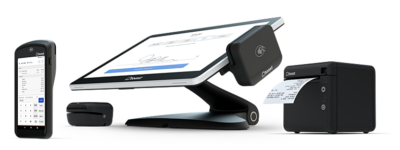
5. Toast: Designed Specifically for Restaurants
Toast is a cloud-based POS system built specifically for the restaurant industry, making it an ideal choice for both small cafes and full-service restaurants. Toast excels at features like table management, menu customization, and kitchen display systems (KDS). It also integrates online ordering, loyalty programs, and contactless payment options, enhancing restaurant efficiency.
However, Toast has faced criticism for its increased transaction fees, which could be a concern for restaurant owners who are processing high volumes of transactions.
Key Features and Benefits:
- Table and Order Management: Streamline order flow and table assignments.
- Online Ordering Integration: Manage in-person and online orders seamlessly.
- Loyalty Programs: Reward returning customers with loyalty programs and digital gift cards.
- Contactless Payments: Offer convenient and safe mobile payment options.
VERIFIED Credit Card Processing helps restaurant owners integrate Toast smoothly, offering support for online ordering, curbside pickup, and payment processing.
Pros:
- Tailored specifically for restaurants.
- Comprehensive table and menu management tools.
Cons:
- Transaction fees have increased over time.
- Higher pricing with add-ons.
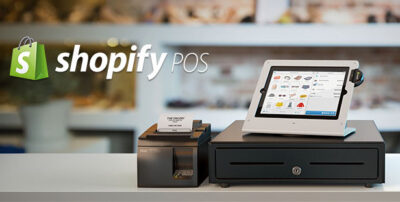
6. Shopify: Seamless Integration for E-commerce Businesses
Shopify POS is a natural extension of the Shopify eCommerce platform, making it an excellent choice for businesses that operate both online and offline. Shopify POS allows you to sync inventory, sales, and customer data across all channels, offering a unified view of your business. The system is known for its ease of use, scalability, and seamless integration with Shopify’s suite of eCommerce tools.
One key advantage of Shopify POS is its flexibility to integrate third-party payment processors via Authorize.net, although this comes with added transaction fees, making it less appealing for businesses that prefer to use alternative gateways.
Shopify Payments, which operates through Stripe, serves as the default payment processor. It’s important to note that businesses operating in high-risk industries may encounter challenges since they operate under Stripe’s merchant identification number (MID), increasing the risk of account freezes or shutdowns.
Key Features and Benefits:
- Omnichannel Integration: Syncs with your Shopify online store for real-time inventory and sales tracking.
- Mobile POS System: Process sales anywhere with Shopify’s mobile app.
- Customizable Checkout: Offers options to integrate third-party payment processors but incurs extra transaction fees.
- Analytics and Reports: Provides in-depth reports on sales, customer data, and inventory.
VERIFIED Credit Card Processing can assist Shopify users who prefer to integrate alternative payment gateways like Authorize.net, providing customized solutions for businesses that face higher transaction risks.
Pros and Cons:
Pros:
- Seamless integration with Shopify’s online store.
- Easy to set up and use for omnichannel businesses.
- Supports multiple payment options.
Cons:
- Added transaction fees for using third-party gateways.
- Some limitations for high-risk businesses due to Stripe’s processing structure.
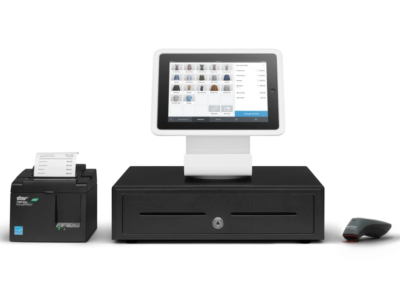
7. Square: Simplicity and Affordability for Small Businesses
Square POS is a widely recognized solution for small businesses and micro-merchants due to its transparent pricing, ease of use, and all-in-one payment processing system. Designed for businesses that prioritize simple, mobile-friendly systems, Square offers everything from payment processing to inventory management, without the need for additional hardware or software purchases.
Square’s pricing is a flat-rate model, meaning that businesses pay a fixed percentage per transaction, which can be higher compared to interchange-plus pricing models like those offered by DejaPayPro or Clover. Additionally, Square does not support third-party payment gateway integration, which limits flexibility for businesses looking to process payments outside of the Square ecosystem.
Key Features and Benefits:
- Mobile POS: Process payments using any mobile device, ideal for pop-up shops and mobile businesses.
- Free Software Plan: Includes basic payment processing and reporting features at no extra cost.
- Inventory and Employee Management: Provides tools for tracking inventory and managing employees, even in the free plan.
- No Long-Term Contracts: You can cancel at any time, making it highly flexible for small businesses.
VERIFIED Credit Card Processing provides alternative solutions for businesses that require interchange-plus pricing or support for multiple payment gateways, ensuring flexibility and savings in transaction fees compared to Square’s flat-rate pricing model.
Pros and Cons:
Pros:
- Easy to set up and use, especially for mobile businesses.
- Offers a free software plan with no long-term contracts.
- Transparent pricing and no hidden fees.
Cons:
- Flat-rate pricing can be more expensive for high-volume businesses.
- No support for third-party payment processors.
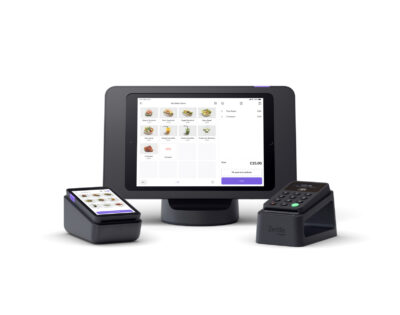
8. PayPal Zettle: Ideal for Small, Mobile Businesses
PayPal Zettle, formerly PayPal Here, is a mobile POS system designed for small businesses and entrepreneurs who want a simple and cost-effective solution. PayPal Zettle is known for its mobile card readers and flexible pricing, making it a strong option for businesses with low transaction volumes. The system is particularly popular for businesses that need mobility, such as food trucks or market vendors, as it can easily process transactions anywhere with a mobile device.
One drawback is that PayPal Zettle’s transaction fees can be higher than other solutions, especially for businesses with a high volume of transactions. The flat-rate structure offers transparency, but growing businesses may want to consider systems with more competitive pricing models as they scale.
Key Features and Benefits:
- Mobile POS: Process payments anywhere using a smartphone or tablet, perfect for on-the-go businesses.
- Integration with PayPal: Seamlessly integrates with PayPal, providing access to PayPal’s customer base.
- Flexible Payment Methods: Accepts a variety of payment methods, including credit cards, mobile wallets, and PayPal QR codes.
- Simple Setup: Easy to install and use, especially for small or mobile businesses.
PayPal Zettle’s rates for card transactions are typically 1.75% for card-present transactions and 2.5% for other payment types such as QR codes and payment links, which can add up for businesses processing a large number of transactions. VERIFIED Credit Card Processing offers alternatives for businesses looking to optimize transaction costs as they grow.
Pros and Cons:
Pros:
- Easy to use and set up for small or mobile businesses.
- Seamless PayPal integration for a broad range of payment methods.
- Transparent pricing with no monthly fees.
Cons:
- Transaction fees can be high for larger businesses.
- Limited scalability for growing companies.
Choosing the Right POS System for Your Small Business
Selecting the best POS system is a crucial step in optimizing your business operations, increasing customer satisfaction, and improving profitability. Whether you’re managing a restaurant, a retail shop, or an eCommerce business, the right POS system should align with your business needs and growth goals.
VERIFIED Credit Card Processing partners with top POS providers like DejaPayPro, Lightspeed, Clover, and more to offer comprehensive payment processing solutions tailored to your business. Whether you need support for high-risk industries, multi-location management, or scalable payment options, VERIFIED has the expertise to help you choose the right system and optimize your payment infrastructure.
Frequently Asked Questions (FAQs)
1. What are the best POS systems for small businesses in 2024?
In 2024, the top POS systems for small businesses include options like Square POS, Shopify POS, DejaPayPro, Lightspeed, and Clover. These systems cater to various business needs:
- Square POS is popular among small retail businesses and pop-up shops for its user-friendly setup and affordability.
- Shopify POS is excellent for businesses that need integration between online and physical stores.
- DejaPayPro is ideal for restaurants and retail stores, with strong payment flexibility and offline capabilities.
- Lightspeed offers advanced inventory management, making it perfect for retailers with large or multi-location stock.
- Clover stands out for its extensive customization options through its app marketplace, catering to different business needs.
2. How do I choose the right POS system for my small business?
To choose the best POS system, consider the following:
- Business Needs: Identify whether you need strong inventory management, table management, or mobile capabilities.
- Cost: Assess the total cost, including hardware, software, transaction fees, and subscription plans.
- Industry-Specific Features: For restaurants, Toast or DejaPayPro might be best; for retail, Korona POS or Lightspeed offer more advanced features.
- Integration: Check if the POS system integrates with other tools like accounting software (QuickBooks) or e-commerce platforms (Shopify, WooCommerce).
- Customer Support: Ensure you have access to 24/7 support for troubleshooting.
3. What features should I prioritize in a POS system?
When selecting a POS system, prioritize features that align with your business operations:
- Payment Processing: Fast and secure multi-payment options, including mobile wallets, credit cards, and contactless payments.
- Inventory Management: Real-time tracking, reorder alerts, and multi-location management are key for retailers.
- Customer Relationship Management (CRM): For personalized marketing and loyalty programs, having detailed customer profiles is essential.
- Reporting and Analytics: Ensure you can generate detailed sales reports and performance metrics to make data-driven decisions.
- Cloud-Based Access: Real-time access to your POS from any device enables flexibility and smooth operations.
4. Can I use a free POS system for my small business?
Yes, there are free POS systems available that can serve basic business needs. For instance:
- Square POS offers a free plan, which includes features like payment processing and basic reporting. However, you will still incur transaction fees.
- Free systems are ideal for startups or small businesses with simple needs, but they may lack advanced features like CRM or detailed reporting.
5. What are the hidden costs associated with POS systems?
Hidden costs can arise from several areas, including:
- Transaction Fees: While the system may be inexpensive upfront, ongoing transaction fees can add up, especially for high-volume businesses.
- Hardware: While some systems offer free card readers, more advanced hardware like receipt printers or POS terminals can increase costs.
- Add-Ons: Features like advanced reporting or customer loyalty programs may come at an extra cost.
- Integration Fees: Additional fees may apply for integrating with external tools like accounting or e-commerce platforms.
6. How do POS systems support eCommerce integration?
Most modern POS systems offer integration with popular eCommerce platforms:
- Shopify POS seamlessly syncs with its online platform, allowing for real-time inventory tracking and consistent sales management across online and physical stores.
- Lightspeed and Square also offer integrations with eCommerce tools like WooCommerce, ensuring streamlined operations for businesses with both online and offline sales channels.
7. What’s the difference between flat-rate and interchange-plus pricing?
- Flat-rate pricing charges a fixed percentage per transaction, regardless of the card type. This is used by providers like Square and Shopify.
- Interchange-plus pricing separates the fee into the interchange rate (set by card networks) and a markup. This model, used by DejaPayPro and Clover, can be more cost-effective for businesses processing high transaction volumes.
8. Can POS systems manage multiple locations?
Yes, systems like Lightspeed and Korona POS are designed to manage multiple business locations:
- They allow centralized inventory tracking, unified reporting, and multi-location staff management. This is particularly beneficial for growing businesses and retail chains.
9. How do POS systems handle inventory management?
POS systems like Korona and Lightspeed offer robust inventory management:
- Real-Time Tracking: Track stock levels in real-time, across multiple locations, and get alerts when stock runs low.
- Reorder Management: Automate purchase orders to replenish stock efficiently.
- Reporting: Generate reports to analyze sales trends and inventory performance, enabling smarter business decisions.
10. What makes VERIFIED Credit Card Processing a good partner for POS systems?
VERIFIED Credit Card Processing offers specialized payment solutions for businesses integrating POS systems like DejaPayPro, Lightspeed, Clover, and more. We provide:
- Tailored merchant services for high-risk industries like CBD, cannabis, and hospitality.
- Expertise in handling multi-location businesses, inventory management, and dual pricing systems.
- Seamless setup and ongoing support to ensure that your business is equipped with the best POS system suited to your needs.
Ready to Start?
VERIFIED Credit Card Processing is here to help you find the perfect POS solution for your small business. Contact us today to learn more about how our tailored payment processing services can streamline your operations and boost your growth. Whether you’re integrating DejaPayPro, Lightspeed, Clover, or Toast, VERIFIED has the right tools and support to ensure your success.
Continue Reading
Let us discover your best options.
Either submit the form below or get in touch with an agent now (415) 835-4135.
Applying is risk-free; we send your details to underwriters to find the best fit and contact you with the best option or request more details, with no credit checks or commitments.



